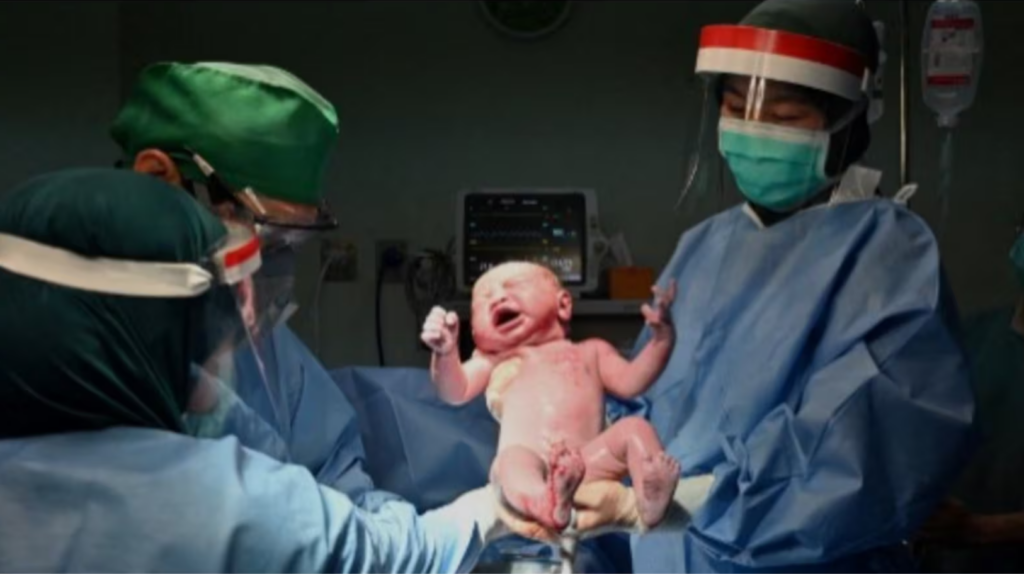Vaginal fluid on C-section newborns improves growth 2023

Cesarean-born babies don’t get the same good bacteria as vaginally born babies, which may affect their immune system development and raise their risk of certain disorders.
A recent research published Thursday in Cell Host & Microbe found that exposing C-section newborns to their mothers’ vaginal secretions after delivery restores this microbial balance and improves neurodevelopment.
The 68-infant research employed stringent methodologies.
If the findings are validated in larger clinical studies, the procedure might be utilized as a low-cost strategy to ensure C-section newborns start life on the same footing as vaginally delivered infants.
“Ideally, this becomes standard of care if the results can be generalized to a larger population,” he added.
C-section rates are rising internationally, accounting for one in three US deliveries, but the World Health Organization believes that 10-15% are medically required.
C-section babies have different gut microbes than vaginal babies.
C-section infants get their early gut bacteria from their mothers’ skin, breast milk, and the environment, whereas vaginal newborns get them via the birth canal.

These variations vanish by age one, but they can increase the risk of asthma, allergies, and diabetes.
‘Vaginal Seeding’
Clemente, a microbiome expert, worked with researchers at the Southern Medical University in Guangzhou, China to explore “vaginal seeding,” or smearing babies with vaginal fluid.
Chinese researchers headed by Yan He massaged 32 C-sectioned babies with gauze soaked in their mother’s vaginal secretions and 36 with saline as a control.
The moms’ vaginas were gauzed one hour before C-section. Starting with the lips and face, newborns were covered in 30 seconds.
Mothers were pre-tested for STDs and group B streptococcus. The experiment did not harm newborns.
The vaginal fluid group had more “mature” gut flora than the saline placebo group at six weeks.
The scientists also used a typical questionnaire to assess the newborns’ neurodevelopment at three and six months, asking their mothers about milestones like rolling, crawling, and making noises.
Vaginal seeding improved three- and six-month scores.
“We think this is partially because of how microbes are producing certain chemical compounds that might impact brain function,” said Clemente, a growing area supported by animal studies.
He underlined that the trial was “triple blinded,” meaning moms, healthcare professionals, and researchers did not know whose babies were in which group. This prevented them from manipulating the results.
Dorothy Bishop, a developmental neuropsychology researcher at Oxford University who was not involved in the study, lauded the “clever design” and said the team had created the framework for larger trials by proving the technique’s safety and practicality.
She noted that they had not yet proved developmental advantage and that the placebo group’s test results “seem pretty average” rather than implying damage.
Clemente plans to expand the study with his Chinese counterparts to get the method closer to clinical practice. He also has a food allergy study underway.
He advises families against replicating the practice outside of clinical research.
